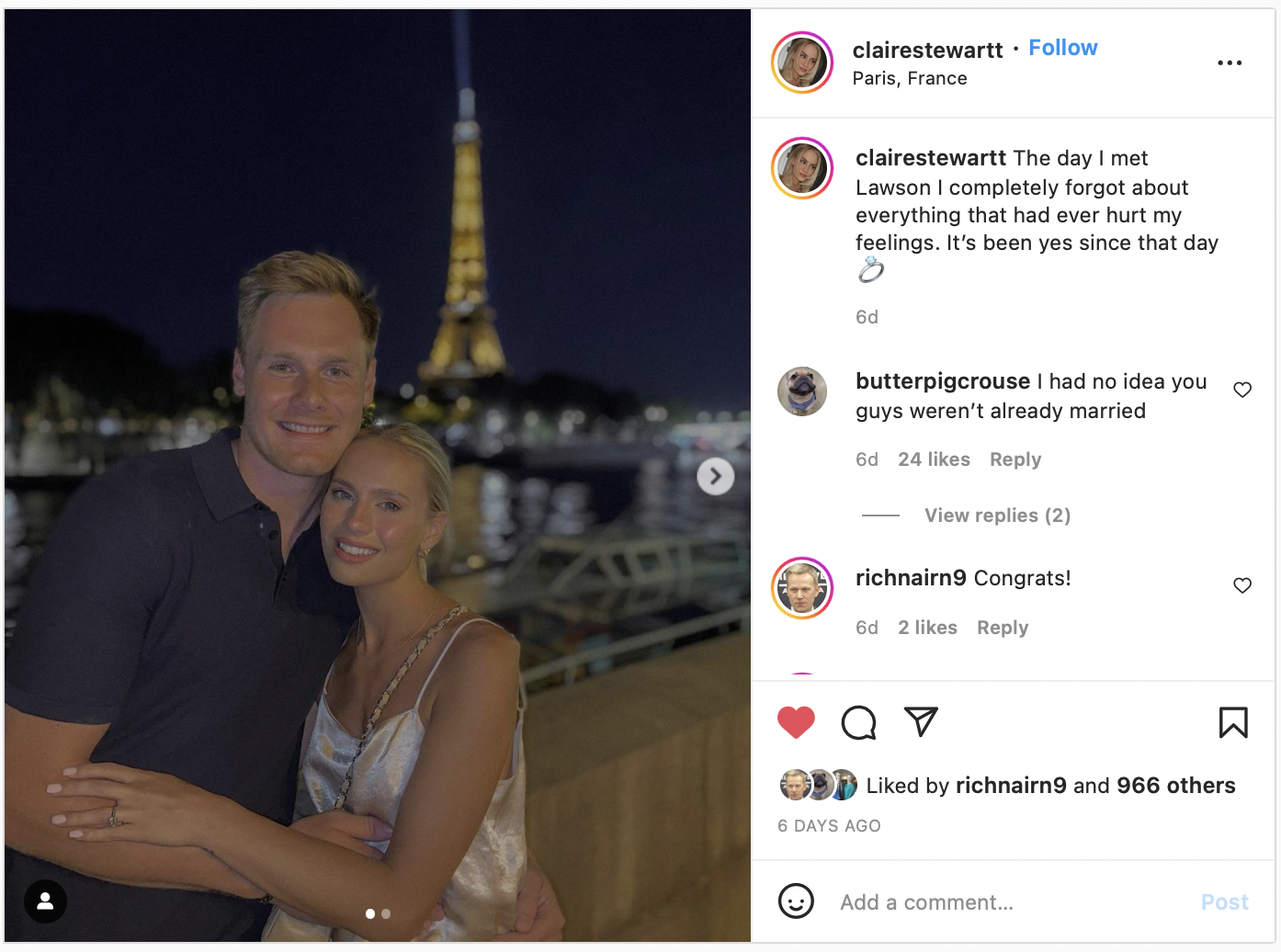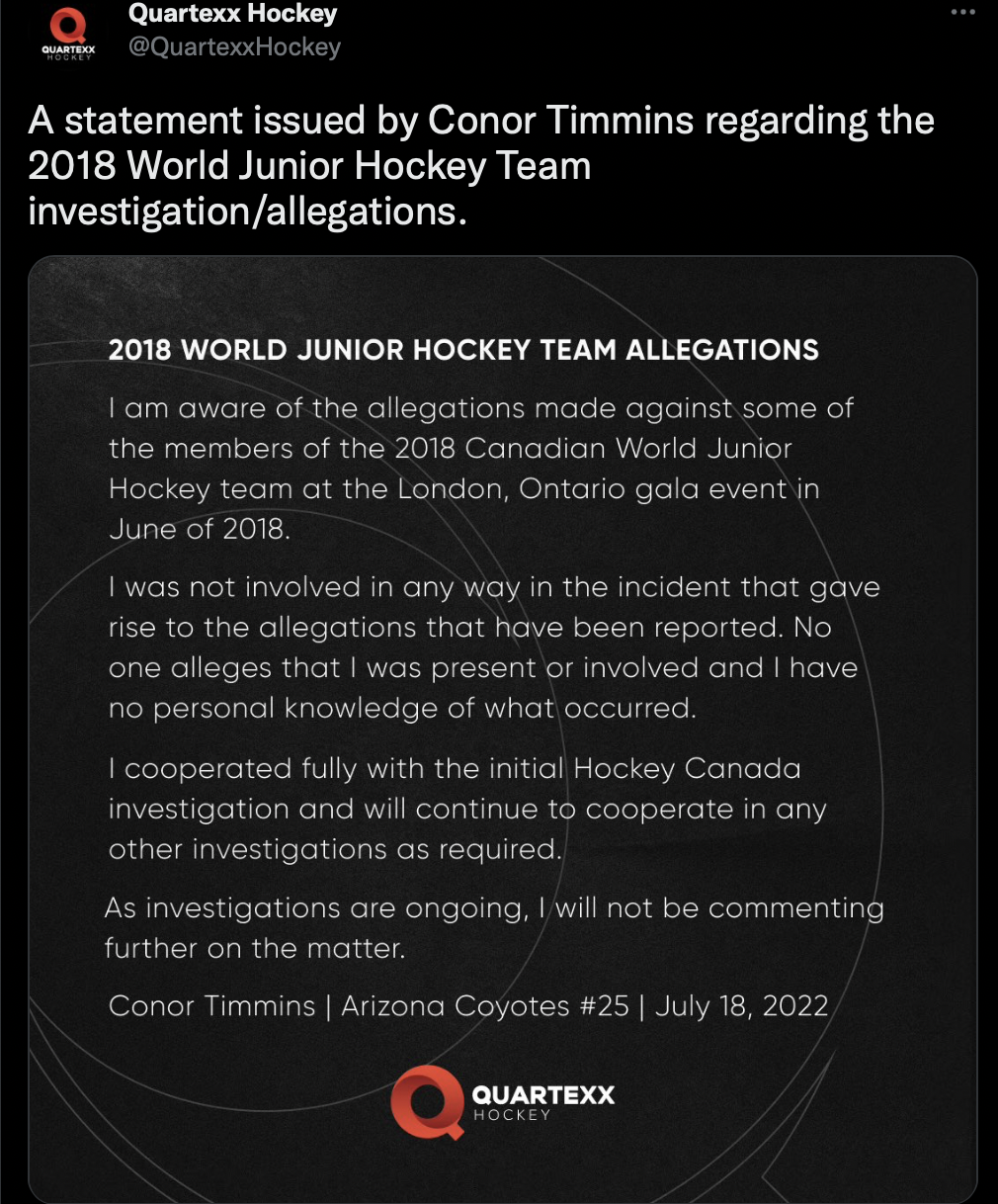© 2025 ALLCITY Network Inc.
All rights reserved.

I touched base with Lawson Crouse’s agent, Rob Hooper, late last week. Between that brief conversation and recent talks with Coyotes GM Bill Armstrong, all indications are that contract talks for the restricted free free-agent forward are progressing slowly.
The Coyotes tendered a qualifying offer to Crouse, 25, on Monday but he has arbitration rights and his camp will file for salary arbitration by Sunday’s 2 p.m. (Arizona time) deadline. There have been no talks between the sides since the NHL Draft last week in Montréal.
If a contract cannot be worked out before then, salary arbitration hearings are scheduled between July 27 and Aug. 11. Arbitrators can only award a one- or two-year contract.
There does not appear to be much debate on the desired term of Crouse’s next deal. Both sides appear to want a mid-range of term of about five years. There is a gap in the dollar amount, however.
Contract comparables are always tricky because there are numerous variables at play, including a player’s position, his role, his surrounding cast, his age, his recent progression and the team’s needs. On the high end of the comparable scale, Crouse’s camp could cite players such as Los Angeles Kings 25-year-old forward Adrian Kempe, (four years, $5.5 million average annual value) and Detroit Red Wings’ 28-year-old forward Andrew Copp (five years, $5.625 million AAV). On the low end of the scale, the Coyotes could cite the Minnesota Wild’s 25-year-old forward Jordan Greenway (three years, $3 million AAV) or Pittsburgh Penguins 25-year-old forward Kasperi Kapanen (three years, $3.2 million AAV).
What does it all mean? Usually, a meeting somewhere in the middle (given the term, maybe something in the $4 million annual range) will get the deal done if both sides are truly vested in compromise, but if Crouse’s camp isn’t satisfied with the offer, they could take the arbitrator’s ruling and come back to the table in a year or two.
Crouse, who just turned 25 three weeks ago, can become an unrestricted free agent after two more seasons. Last season, he had a career-high 20 goals and 34 points in a season that was shortened to 65 games due to injury. He also averaged a career-high 17:26 of ice time. Coach André Tourigny often cited him as an example of a player seizing greater opportunity through offseason work, attitude and performance.
Crouse and his longtime partner, Claire Stewart, were recently engaged in Paris, much to Butter Pig’s surprise.

Sifting through free-agent signings
We told you that the Coyotes would not be major players when the free agency period opened last week and that logical projection held true. GM Bill Armstrong and his staff were more interested in depth signings, re-signing some of their own players and filling out a roster, while also keeping an eye out for teams interested in moving bloated contracts along with draft assets.
Armstrong accomplished the latter (he will remain open to more of these opportunities as training camp approaches) by acquiring the remaining two years of Patrick Nemeth’s contract from the New York Rangers along with a 2025 second-round draft pick and a conditional 2026 second-round draft pick in exchange for defenseman Ty Emberson.
“We were trying to put some good solid players in there that would make us a very competitive, hard-working team. I think we accomplished that,” Armstrong said. “That was one of the main things with some of the guys that we added, and at the same time, trying to acquire some assets for acquiring Patrick Nemeth. We’re excited about where we moved.”
The conditions of the pick in the Nemeth deal are that the Coyotes can choose between New York’s 2024 third-round pick or its 2026 second-round pick. As a side note, that option is often just window dressing created by the other team to ease the optics of the trade. There are almost no scenarios under which the Coyotes will take a low third-round pick over a low second-round pick and Armstrong is also determined to spread out his picks over the next several seasons to keep a steady pipeline of prospects flowing through the system.
Over the next three drafts, Arizona already has a combined 18 picks in the first three rounds.
Here’s how the most recent free-agency period shook out for the Coyotes in which they signed eight players for less than a combined maximum of $10 million ($9.9125 million).
| Player | Position | Contract |
| Nick Bjugstad | Forward | 1 year, $900,000 |
| Troy Stecher | Defenseman | 1 year, $1.25 million |
| Josh Brown | Defenseman | 2 years, $1.275 million AAV |
| Jean-Sébastien Dea | Forward | 2 years, $762,500 AAV |
| Laurent Dauphin | Center | 1 year, $750,000 |
| Boko Imama | Forward | 1 year, $750,000 |
| Lukáš Klok | Defenseman | 1 year, $950,000 *AAV |
| Jon Gillies | Goalie | 1 year, $750,000 |
As I noted in my free-agency preview, there is no good reason to spend a lot of money on a team that will not compete for a playoff spot so expect the Coyotes to be much closer to the cap floor than the cap ceiling when the dust has settled on 2022 offseason spending.
With 40 standard player contracts (the max is 50), that is exactly where the Coyotes sit. Per capfriendly.com and puckpedia.com, the Coyotes cap number is $59,443,376 and $58,625,875, respectively. The cap floor is $60.2 million and the Coyotes still have to sign RFAs Lawson Crouse and Barrett Hayton.
Again, they could opt to take on another bloated contract or two if Armstrong can also secure the accompanying draft assets.

Depth chart
With the recent signings, here is a look at the depth chart for the upcoming season. Additional signings could impact this chart. In particular, I wonder if the Coyotes will still look to add another goalie.
“There’s only so many chairs In the NHL; it’s like playing musical chairs,” Armstrong said. “Once all the goaltender spots are filled up, you might get lucky, whether it’s through waivers or being the last man to the dance. So we’ve played the patient game. We’ll see how it works out.”
A word of caution: This is by no means a guess as to what the Coyotes’ lines and pairs will look like. Aside from guessing that Nick Schmaltz and Clayton Keller will play together again because of their success last season, the forward lines and defense pairs will be in flux from the start of training camp throughout the season due to injuries, slumps, hot streaks and experimentation. As an example, how quickly will Conor Timmins be ready to play after knee surgery last fall, and a smaller procedure on the same knee last spring? Will Dysin Mayo, who ate big minutes last season, reprise that role?
There is also the Tucson factor to consider. Will players such as Matias Maccelli and Victor Söderström be ready to make the jump when there is a full complement of healthy players on the NHL roster?
Forwards
| Left wing | Center | Right wing |
| *Nick Schmaltz | Travis Boyd | * Clayton Keller |
| Lawson Crouse | Nick Bjugstad | Zack Kassian |
| Nick Ritchie | Barrett Hayton | Christian Fischer |
| Liam O’Brien | Jack McBain | Miloš Kelemen |
| Andrew Ladd | Nathan Smith | Michael Carcone |
Defensemen
| Left defense | Right defense |
| Shayne Gostisbehere | Dysin Mayo |
| Jakob Chychrun | Troy Stecher |
| JJ Moser | Josh Brown |
| Patrick Nemeth | Conor Timmins |
Goalies
| Karel Vejmelka |
| Jon Gillies |
| Ivan Prosvetov |
Loose pucks
- Hockey Canada announced on Friday that it would reopen the investigation into the alleged sexual assault perpetrated by members of the 2018 National Junior Team. Coyotes defenseman Conor Timmins was a member of Canada’s U18 World Junior team, but multiple sources told PHNX that he is not one of the players under scrutiny for potential sexual assault. UPDATE: Timmins released a statement two days later:

- GM Bill Armstrong on the role of injury-plagued Bjugstad: “We’ve always felt with him that he can score. I can remember scouting him back in the day in Minnesota. We just felt like this guy has the ability to get us 20 to 25 goals in the year if we put them in the right situations. I don’t like sometimes when he’s on that third or fourth line. I think when you put him up the order and you put him on some power play he can really do some damage. He’ll obviously have to execute and produce in that situation, but he’s going to get an opportunity here.”
- Armstrong on Stecher’s role: “He takes that spot for us with (UFA departure Anton) Strålman. He can go in there on the right side and play big minutes for us. He had his best years when he was in Vancouver (2016-20). I think the more he plays, the better he gets. He has a tremendous amount of energy and grit and hustle. I’m really looking forward to seeing him on our back end.”
- Armstrong on Brown’s role: “He’s a player that gives us an element we haven’t had on the back side where it gives us some toughness. He can play some minutes back there, he can be a physical presence and he can make sure that nobody takes advantage of any of our players. I think we become bigger and tougher with Brownie.”
- If you want to check out some of our lighthearted interviews with Coyotes prospects at development camp, PHNX’s Leah Merrall and Emma Clark produced some fun content.
Follow Craig Morgan on Twitter
Comments
Share your thoughts
Join the conversation



